Breakthrough success can often be a tough act to follow. But with a little help from some notable friends, Robert Glasper Experiment is set to up the ante with the follow-up to his successful GRAMMY-winning album Black Radio. Flaunting a diverse array of featured guests including Common, Patrick Stump of Fall Out Boy, Brandy, Jill Scott, Dwele, Marsha Ambrosius, Anthony Hamilton, Faith Evans, Norah Jones, Snoop Dogg, Lupe Fiasco, Luke James, Emeli Sandé, Lalah Hathaway, and Malcolm-Jamal Warner, Black Radio 2 is certain to surprise and delight critics and fans alike. With a unique fusion of R&B, jazz, and hip-hop that brazenly traverses the boundaries of all three genres, Black Radio 2 finds Glasper and his musical cohorts creating in a vibrant new chasm, brilliantly contrasting its predecessor in the process.
“This record was a little different,” explains the Houston, Texas native. “I didn’t want to make the same record twice. I wanted to make a conscious effort to keep the vibe and the spirit of the first one without it sounding the same.” Considering his own rich musical journey, this sonic shifting approach to Black Radio 2 seems to be a long time coming. Reared in a household where Motown, R&B, and gospel were constant companions, his mother sang and played piano in church while indulging in her love for jazz and blues by performing at local clubs. By the age of twelve, he’d begun to fully follow his mother’s lead by playing piano in church and accompanying her on club dates on the Houston circuit.
Glasper went on to sharpen his prodigal chops at the Houston High School for the Performing Arts and New School University, allowing his developing affinity for pop, hip-hop, and rock to inform his musical sensibilities. By 2003, Glasper had already racked up spots in the bands of prominent jazz artists such as Christian McBride, Kenny Garrett, Nicholas Payton, Terence Blanchard, and Roy Hargrove. In addition, his deep appreciation of hip-hop and R&B allowed him to form lateral bonds in those respective worlds. Guided by his mother’s example, Glasper simultaneously performed jazz while taking gigs as a touring musician and musical director for artists such as Maxwell, yasiin bey, Q-Tip, and Bilal.
With an impressive wealth of experience and talent, it was only a matter of time before he’d become an artist in his own right. That same year, he released his debut album Mood on Fresh Sound Records. Blue Note signed Glasper soon after and released his label debut Canvas (2005), followed by In My Element (2007) and Double-Booked (2009) – his first GRAMMY-nominated effort which juxtaposed his acoustic Trio with the electric Experiment band. While those albums were primarily rooted in jazz, he made certain to sprinkle his other musical influences into the stew. But in 2012, he decided it was time to serve the full main course. Glasper’s Black Radio was released that year to a maelstrom of critical acclaim. Featuring the likes of Erykah Badu, Bilal, Lupe Fiasco, Lalah Hathaway, Ledisi, Meshell Ndegeocello, and yasiin bey, the album was cultivated via a series of jam sessions with artists from varying genres whom Glasper formed alliances with during his time in the music industry. “Everybody just came to the studio and we did stuff on the spot,” he says. “That was the vibe. I wasn’t thinking R&B.”
Black Radio was heralded by media outlets such as Rolling Stone, who wrote “Glasper heads down the fraught path of hip-hop jazz and gets it right,” adding “with music this smart and inviting, the implied diss of mainstream doesn’t feel like sour grapes; it feels like a blueprint forward.” The lead single “Ah Yeah” with Chrisette Michele and Musiq Soulchild landed on radio playlists nationwide, and TV appearances on Late Show With David Letterman, Tonight Show With Jay Leno and Late Night With Jimmy Fallon followed. But when Black Radio took home the award for Best R&B Album at the 2013 GRAMMY Awards, there was no doubt that all eyes were on Glasper and his band of musical brothers.
In the wake of the GRAMMY win, offers to collaborate were abundant and bountiful. This withstanding, Glasper chose to curate his next aural exhibit more keenly to achieve a specifically desired effect. “Black Radio got so much love from the R&B world, so I made a conscious decision to concentrate a bit more on songs for this record,” he says of the anomalous coup. With that, Glasper set out to focus on R&B song structure that complimented his jazz pianist chops as well as that of the rest of Robert Glasper Experiment – Casey Benjamin (saxophone/vocoder), Derrick Hodge (bass), and Mark Colenburg (drums).
With this concept firmly in hand, Glasper reached out to noted R&B songwriters to collaborate with. Soon afterwards, he ensconced himself in the legendary Los Angeles recording studio Westlake Studios with the members of the Experiment and a handful of guest vocalists to craft material for the new album. The glowing results from this session and subsequent sessions in Los Angeles and New York City are evidenced throughout the 12 dynamic tracks on Black Radio 2.
Featuring the scintillating vocals of multi-platinum superstar Brandy, GRAMMY-nominated songwriter Claude Kelly (Bruno Mars, R Kelly, Michael Jackson) paints a melodic portrait of a languishing love affair on the head nodding cut “What Are We Doing.” GRAMMY-winning Roc Nation songwriter Andrea Martin (Melanie Fiona, Angie Stone, Monica) contributes a tale of longing on the intensely passionate “Yet To Find” as lauded recording artist Anthony Hamilton infuses the track with his patented brand of grit n’ soul. Conversely, Detroit recording artist Dwele brims with the confidence and assurance of a love supreme on the Rhodes embroidered “Worries,” penned by Young Money recording artist and GRAMMY-winning songwriter PJ Morton (India.Arie, Maroon 5, Stevie Wonder).
Yet even with the proven songwriting talent of his aforementioned company, Glasper exhibits the wisdom to allow some of his featured guests the freedom to flex their skill behind the mic as well as with the pen. The results are brilliantly exemplified in the album’s soaring opening track “I Stand Alone” that was crafted with collaborators Common and Patrick Stump, and the lead single, “Calls” featuring Jill Scott, where Scott weaves a story of a metaphysical romantic connection partly quantified in answered phone calls over a lush bed of Glasper’s dreamy piano chords. The mesmerizing mid tempo track “Trust” follows suite featuring the crystalline vocals of singer/ songwriter Marsha Ambrosius, who is a noted songwriter in her own right having penned the Michael Jackson hit “Butterflies.” Black Radio 2 also features pensive spoken word interludes interspersed amongst the musical mélange by esteemed African American academic/ author Michael Eric Dyson and gospel singer/ preacher John P. Kee.
Poet/actor Malcolm-Jamal Warner made a spontaneous and meaningful contribution to the album when he dropped by the studio and ended up penning and recording a thought-provoking slice of spoken word poetry on the profoundly poignant and symbolic rendition of the Stevie Wonder gem “Jesus Children Of America,” featuring the vocals of Black Radio alumnus Lalah Hathaway. The song is fashioned as a tribute to the victims of the 2012 Sandy Hook tragedy and has a deeply personal meaning for Glasper. “The very first time I performed that song live was during a Stevie Wonder tribute on the day the Sandy Hook tragedy took place,” he recalls. “I’d also found out that a close friend lost his daughter in the tragedy. So when we did the Stevie song, I almost lost it. It hit close to home, because I have a four-year-old son.”
Amidst the immense star power, Black Radio 2 also manages to shine a light on buzz worthy newcomers like BRIT Award winning U.K. artist Emeli Sandé (“Somebody Else”) and Island Def Jam recording artist Luke James (“Persevere” featuring Snoop Dogg and Lupe Fiasco). In addition to the original 12 tracks, the deluxe edition of Black Radio 2 includes four bonus tracks: “I Don’t Even Care” featuring Jean Grae and Macy Gray, “Big Girl Body” featuring Eric Roberson, “My Everything” featuring Bilal and Jazmine Sullivan, and an instrumental cover of the classic Bill Withers tune “Lovely Day” featuring a spoken intro from Mr. Withers himself who made a surprise visit to the studio in Los Angeles.
Black Radio 2 further exemplifies Glasper’s remarkable skill as a producer and musician adept at extracting a truly extraordinary side of his guests’ acclaimed talents, irrespective of differences in genre. It is also a magnificent display of an undaunted jazz composer intent on allowing the full range of his musical influences ebb and flow through his output in an astonishing fashion. Black Radio 2 serves as a conceptually illustrious reminder of the multitude of possibilities for musical collaboration and blurring the lines. But for Glasper, this is merely second nature.
“Jazz musicians are becoming more comfortable with music that speaks to them personally,” he muses. “I think it’s very important that musicians feed off the fruit of the music that actually is the soundtrack of their lives. The only way to keep something relevant is to renew it from history and let it grow and change. When that happens, you start getting stuff like Black Radio 2. Black music is the house that has many rooms. Black people have invented so many dope genres that everyone loves: Jazz, blues, gospel, R&B, rock, hip-hop, and the list goes on. I’m just visiting all those rooms. It’s my mansion; it’s our mansion. I don’t have to exclude anything. With that said, who knows where I’ll go next.”




















